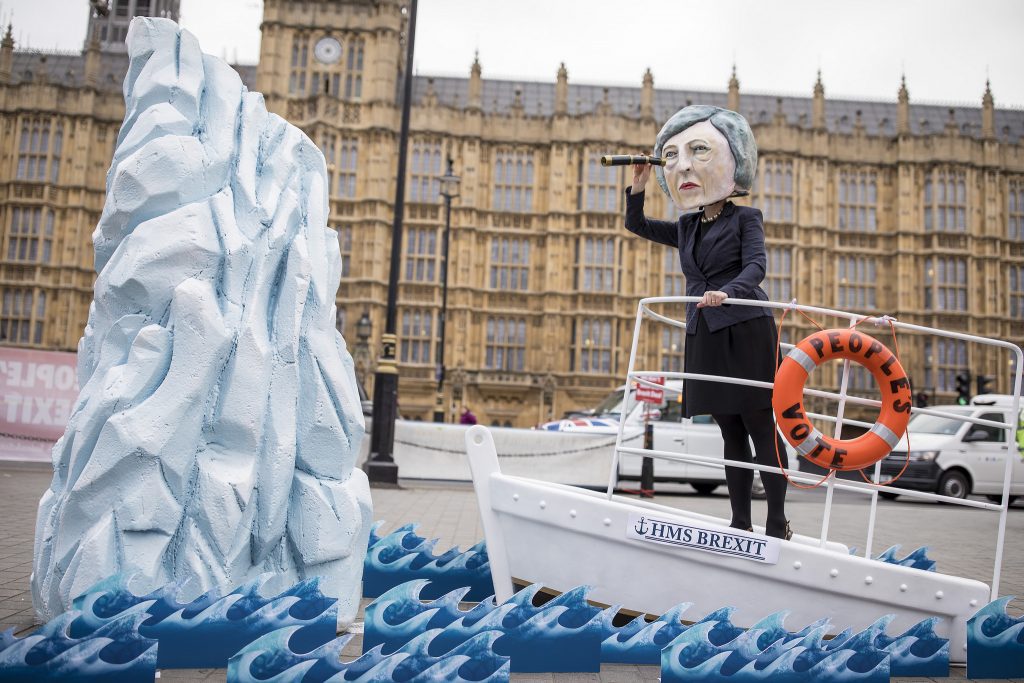Skift Take
A weak pound made the UK more attractive to tourists, but a chaotic Brexit threatens the country's hospitality industry.
One of the few upsides to the UK’s Brexit vote in 2016 was the bounce inbound tourism enjoyed following the slump in value of the pound.
The UK was suddenly a lot more attractive for visitors. Overseas residents spent £24.5 ($31.51) billion on visits to the UK in 2017, up 9 percent on 2016. The increase in spending was larger than the growth in visitors, which only rose 4 percent. Tourists found the dollars and yuans in their pockets were worth a lot more.
But even with the weakness in the pound persisting, there are reasons to believe tourism growth will not continue at this rate. Full year stats for 2018 are not available yet but trends in the numbers available paint a less rosy picture, and there are a couple of other reasons to be fearful.
In the first six months of 2018, visits were down 7 percent versus 2017, although it was still the second highest first-half ever recorded.
The early signs are that 2018 won’t be as good as 2017, and the views of tourists reflect this.
VisitBritain, the destination marketing organization for Great Britain (that’s England, Scotland and Wales, but not Northern Ireland,) has tracked consumer sentiment for a number of years across a range of source markets.
Speaking at a tourism event on Tuesday, Richard Nicholls VisitBritain’s head of research and forecasting said that the fall in value of the pound immediately after the referendum had been a positive factor in places like China and the United States.
“We’ve found that over time this effect has eased off a little bit since the initial wave so in August 2016 there was perhaps an initial weak pound effect when we saw a surge in bookings [it’s] ebbed a way a little bit but not a huge amount,” he said.
“In terms of the value message it was most prominent back in 2016, the weak pound is now less top of mind for visitors.”
Brexit Means Brexit
While the UK’s currency woes have helped tourism, the fact the government has yet to agree to a Brexit departure deal represents something of a threat.
Prime Minister Theresa May secured an agreement with European Union leaders last year but Tuesday night parliament roundly rejected it. Nobody knows what is going to happen next but the clock is ticking and the UK is set to leave the European Union on March 29 – unless both sides agree to an extension.
Researchers at Oxford Economics predict the UK will enjoy a 3 percent increase in total arrivals, a 5 percent increase in leisure arrivals, and total visitor spending growth of 6 percent in 2019. This is based on the current available data and, crucially, the passage of a Brexit deal. And while a no-deal Brexit might further devalue the pound and make it even more attractive to visitors, the economic strife and transport chaos predicted would likely dissuade a lot of people from coming. Continuing global economic uncertainty might also hurt inbound tourism.
There’s another factor as well. UKHospitality, the lobbying group for restaurants and hotels, estimates that 12 percent of the 3.2 million workers in the sector are from the EU.
May is obsessed with ending freedom of movement between the UK and the rest of Europe, presenting a massive problem for the industry. Even though Brexit hasn’t even happened yet migration from Europe has fallen dramatically. Hotels are struggling to find staff.
“In the last year we’ve seen the number of applications coming in…fall to almost next to nothing – very, very few applications at all,” said Jonathan Raggett, managing director of Red Carnation Hotels, which has six London properties.
“And to create the perfect storm, we’ve had…more than 60 of our outstanding managers, and employees return to their home country.”
The reasons are many, according to Raggett. The economies of places like Poland have improved, London is a very expensive place to live, and European citizens have suffered abuse since the Brexit vote.
“I see carnage out there across our industry both in hotels and restaurants unless the government solves this issue that’s out there at the moment,” Raggett said.
May’s inability to get her Brexit deal through parliament means that business uncertainty will continue and Kate Nicholls, CEO of UKHospitality, believes postponing Brexit might be necessary.
“[Yesterday’s] vote in Parliament brings into stark reality the prospect of a no deal Brexit, which would likely be disastrous for the British economy and a hospitality sector that is well-equipped to make a vital economic contribution as we leave the EU,” she said.
“There can be no delay, faced with such a stark outlook, for politicians to focus on working together to take any and all measures possible to ensure that British consumers are not in the direct firing line of the consequences of food and drink supply chain chaos and the price rises that would inevitably ensue.
“If that means delaying implementation of Article 50 then ideological differences must be put aside for the sake of pragmatic economic benefit.”
The UK might get even cheaper in the future but if there are food shortages, and fewer restaurant and hotel staff, tourists may decide to steer clear.
The Daily Newsletter
Our daily coverage of the global travel industry. Written by editors and analysts from across Skift’s brands.
Have a confidential tip for Skift? Get in touch
Tags: brexit, hotels, tourism, uk
Photo credit: A person wearing a Theresa May head. The UK has still not decided what type of Brexit it wants, and has rejected her vision. Avaaz / Flickr
